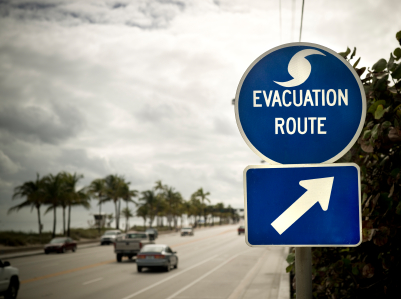Car insurance remains a popular target for organized crime and fraudulent rings, generating thousands of cases each year, according to the National Insurance Crime Bureau. An NICB analysis of the period from Jan. 1, 2008, through June 30, 2012 reviewed 13,014 questionable insurance claims. Questionable Claims are claims that NICB member insurance companies refer to the NICB for closer review and investigation based on one or more indicators of possible fraud. A single claim may…
Read MoreInsurance fraud
Watch out for fraud during Hurricane Sandy rebuilding
Disasters have a way of bringing out the best in people, but the worst in others who prey on people trying to recover after the storm.
Read MoreBeware of shady tow trucks in Hurricane Sandy cleanup
Price gouging and other scams involving towing companies and impound lots are being reported by survivors of Hurricane Sandy. According to the National Insurance Crime Bureau, its member companies are already receiving bills with classic signs of price exploitation. For a tow that occurred on October 30, one towing company charged $2,150, which included a $1,250 “recovery” fee in addition to charges for towing, storage and administration. NICB members report towing firms are hooking up…
Read MoreAvoiding fraud after the storm
After a major disaster homeowners are likely to be approached with contractors offering help, with some of them looking to take advantage of the situation. Homeowners must be alert to storm-chasing contractors who try to exploit the confusion after Hurricane Sandy by making shoddy repairs or stealing down payments, according to the Coalition Against Insurance Fraud. The coalition indicated that while most contractors are honest, shady contractors typically descend on disaster areas such as those caused…
Read MoreInsurance fraud impact greater than estimated
The cost of insurance fraud is greater than previously estimated and is expected to grow in the future, according to a recent survey by the Property Casualty Insurers Association of America and FICO, a provider of predictive analytics and decision management technology. Forty-five percent of insurers estimated that insurance fraud costs represent 5-10 percent of their claims volume, while 32 percent said the ratio is as high as 20 percent. More than half (54 percent)…
Read MoreTechnology key to fight against insurance fraud
Using anti-fraud technology could be an important part of combating insurance scams that are increasing in both numbers and organization. Predictive modeling and text mining will be the primary anti-fraud technology investments anticipated by insurers over the next two years, according to a survey by the Coalition Against Insurance Fraud. The coalition polled 74 U.S. insurance executives to understand how and to what extent insurers are using anti-fraud technologies. “The State of Insurance Fraud Technology” was…
Read MoreBeware of debt cutting scams
At a time when large numbers of Americans are struggling with debt, it’s no surprise they’d become targeted by scammers claiming to offer relief. Companies offering debt removal solutions and credit guidance are on the rise, but so are debt scams as well. Today there are a variety of debt-related scams that include debt counselors, identity theft and credit cards. 1st Financial Center is offering information for consumers about recent deceptive debt scams and tips…
Read MoreCommon car crash scams and how to avoid them
Although most car crashes are unintentional, there are criminals who cause a wreck on purpose with the intent of defrauding an innocent victim’s insurance company. By knowing how these schemes work, motorists have a better chance of avoiding them. Florida’s Department of Financial Services’ Division of Insurance Fraud, the National Insurance Crime Bureau and the Florida Highway Patrol are collaborating on a campaign to put a stop to staged crashes. Criminals use paid witnesses, unethical…
Read MoreBeware of scammers using healthcare information ruse
A group of scammers are using the Affordable Care Act to try and dupe consumers into giving out information that can be used to steal their identities. According to the Federal Trade Commission, these scammers claim to be from the government and say that under the ACA they need to verify some information. For example, they might have the routing number of the person’s bank, and then use that information to get the person to reveal the…
Read MoreThe top 12 dumbest insurance fraud cases: Our annual roundup
It’s easy to understand why someone might be tempted to commit insurance fraud because the lure of money never ceases. The state of the economy combined with the draw of “easy money” continues to make insurance fraud a low-risk, high-gain proposition to most criminals. “The economy is squeezing more and more consumers and forcing growing numbers into a financial bind. This is creating a great deal of temptation for some consumers to seek a financial bailout…
Read More






















